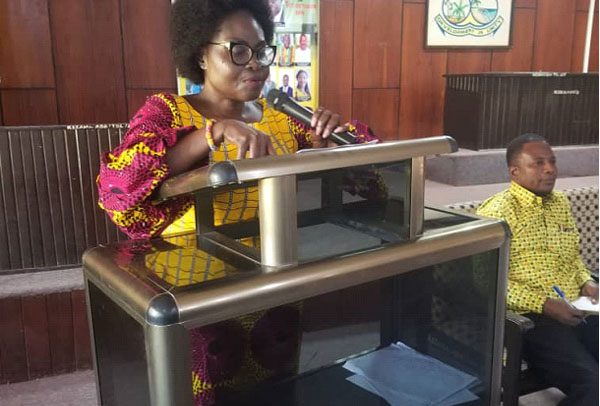Comfort Owusu
THE EXECUTIVE Director of the Association of Rural Banks Ghana (ARB-Ghana), Comfort Owusu, has tasked rural and community banks (RCBs) to lead the financial inclusion drive with provision of tailored and affordable financial products within their catchment areas in a responsible and sustainable way.
Speaking at the grand durbar to climax this year’s Rural Banking Week celebrations of the Central Chapter of Association of Rural Banks (ARB-Ghana) at Elmina in the Central Region, she indicated that if Ghana was ever to achieve the desired level of financial inclusion for its citizens, it would depend largely on the activism of RCBs.
According to her, the quest to spearhead financial inclusion as a matter of urgency required the collective energy of RCBs to stimulate each other’s thinking and actions, to help change the lives of people in rural communities.
“It is sad to say that there are still millions of people in the country without access to financial services; people who might never in their lifetime have access to a bank account, secure a loan from a bank to start a business, or even to save towards a pension and for financial freedom. It is for people like these that the issue of financial inclusion needs to take centre-stage in all our dealings as rural and community banks,” she noted.
Mrs. Owusu said RCBs were the engine to drive the national agenda of financial inclusion by taking banking to the doorstep of persons in remote parts of the country, and for that matter it was necessary for them to take actions which resulted in expanding people’s access to services offered by the formal financial sector.
About 60 per cent of the Ghanaian population live in rural communities, and the only financial institution they can have access to within any 10-mile radius is a rural or community bank.
She further implored RCBs to meet the need to expand their access points across the country so as to offer convenience and comfort to depositors and customers.
“We, as RCBs, need to find simple, creative and innovative ways of educating the people in our catchment areas about the tailored products they can take advantage of. While we do all these, we need to also pay attention to consumer protection and our financial capabilities in order to promote responsible and sustainable financial services,” she added.


